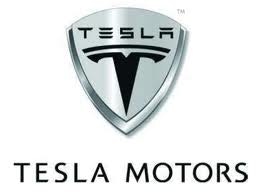That’s the question I asked my friend when he approached me and stated that he wanted to sell shares of Tesla Motors Inc (NASDAQ:TSLA) short. When I asked him about the thesis behind his shorting he responded by quoting concerns over Model S battery technology and the size of the market opportunity for electric cars in general. He also added that Tesla is way overvalued and that eventually the market will realize that and will beat the company’s shares down. I told him to go out and find himself a different short candidate unless he wishes to blow his trading account.
Tesla and Valuation
Yes, Tesla Motors Inc (NASDAQ:TSLA) is overvalued. At current prices, I believe everyone knows it. Alarmingly, Tesla is trading at roughly 21 times the industry’s sale-to-book ratio, and 54 times the average price-to-book ratio of the industry–all of this while continuing to burn cash at an alarming rate. To give you the scope of how big the valuation divergence is, by utilizing the industry price to sales metric Tesla would be valued at approximately $4.55 per share, and on an industry book value basis at $1.77. While I understand Tesla is growing revenues faster than the industry, investors are paying a huge premium for that growth. With such a large premium currently priced in, even with above normal growth it is unlikely that Tesla will grow into its enormous multiple.
But you can’t short a stock solely on valuation concerns because Tesla Motors Inc (NASDAQ:TSLA) could remain expensive for a very long time, just like other big names such as Amazon.com, Inc. (NASDAQ:AMZN) or salesforce.com, inc. (NYSE:CRM). Many short sellers of these stocks have been completely wiped out in the process.
Why NOT to Short Tesla
Although Tesla Motors Inc (NASDAQ:TSLA)’s valuation seems preposterous, I currently do not recommend selling their shares short, mainly for the two reasons below.
The Institutional Edge
Growth oriented funds have been major investors in super-growth stories like these of salesforce.com, inc. (NYSE:CRM) and Amazon.com, Inc. (NASDAQ:AMZN). As of the end of Q1 2013, the 10 largest institutional investors of Salesforce controlled 52.47% of the company’s outstanding shares, while Amazon’s 10 largest institutional investors controlled 31.33% of the company’s outstanding shares. For Tesla Motors Inc (NASDAQ:TSLA), the figure currently stands between those two companies, with 41.95% of outstanding shares controlled by the company’s 10 largest institutional investors. Such levels of institutional ownership will likely serve as an impediment to a major fall in Tesla’s share price. That’s because major funds are usually eager buyers, not eager sellers. They are a much stronger “hand” than the average Joe investor. So when prices begin to fall, you can usually count on these funds not to dump their shares with the public but rather take advantage of this situation to restrengthen their existing position.
The Founder’s Edge
Investors love it when founders are heavily invested in shares of their companies. It signals that they too place faith (and their money) in the story. when it comes to salesforce.com, inc. (NYSE:CRM), Amazon.com, Inc. (NASDAQ:AMZN), and Tesla Motors Inc (NASDAQ:TSLA), few investors have more “skin in the game” than Marc Benioff, Jeff Bezos, and Elon Musk. Marc Benioff, despite the unending criticism he receives from Salesforce critics, has much to lose from a collapse of Salesforce stock. With a stake of 10,212,500 shares, Benioff himself owns nearly 2% of the company, and his stake is valued at $395 million, or 15.19% of Benioff’s net worth. The figures for Jeff Bezos are even higher. Jeff Bezos is Amazon’s largest shareholder, with a stake of 86,970,020 shares, or 19.1% of Amazon’s currently outstanding shares. Even more importantly, this stake, valued at $24.44 billion based on Amazon’s June 10 closing price, comprises virtually all of Jeff Bezos’ net worth, estimated to be $25.2 billion. That is an extremely strong vote of confidence in the company. The situation at Tesla has played out in a fairly similar fashion. The founder and CEO Elon Musk owns 28,287,366 shares of the automobile manufacturer, thereby making him the company’s largest investor with a stake of 23.84% This stake is currently valued at $2.83 billion and makes up nearly 63% of Musk’s $4.5 billion net worth
The Fool Looks Ahead
Shorting a stock solely on valuation is a money losing proposition. Strong institutional ownership and a large founder’s stake are much better signals. I believe that with Tesla, similarly to Amazon.com, Inc. (NASDAQ:AMZN) and salesforce.com, inc. (NYSE:CRM), these signals will be proven right, and not the high end valuation. If you wish to short a stock, I suggest you go and find yourself a better opportunity than Tesla.
Shmulik Karpf has no position in any stocks mentioned. The Motley Fool recommends Amazon.com, Salesforce.com, and Tesla Motors . The Motley Fool owns shares of Amazon.com and Tesla Motors .
The article Do You Really Want to Short Tesla? originally appeared on Fool.com.
Copyright © 1995 – 2013 The Motley Fool, LLC. All rights reserved. The Motley Fool has a disclosure policy.






